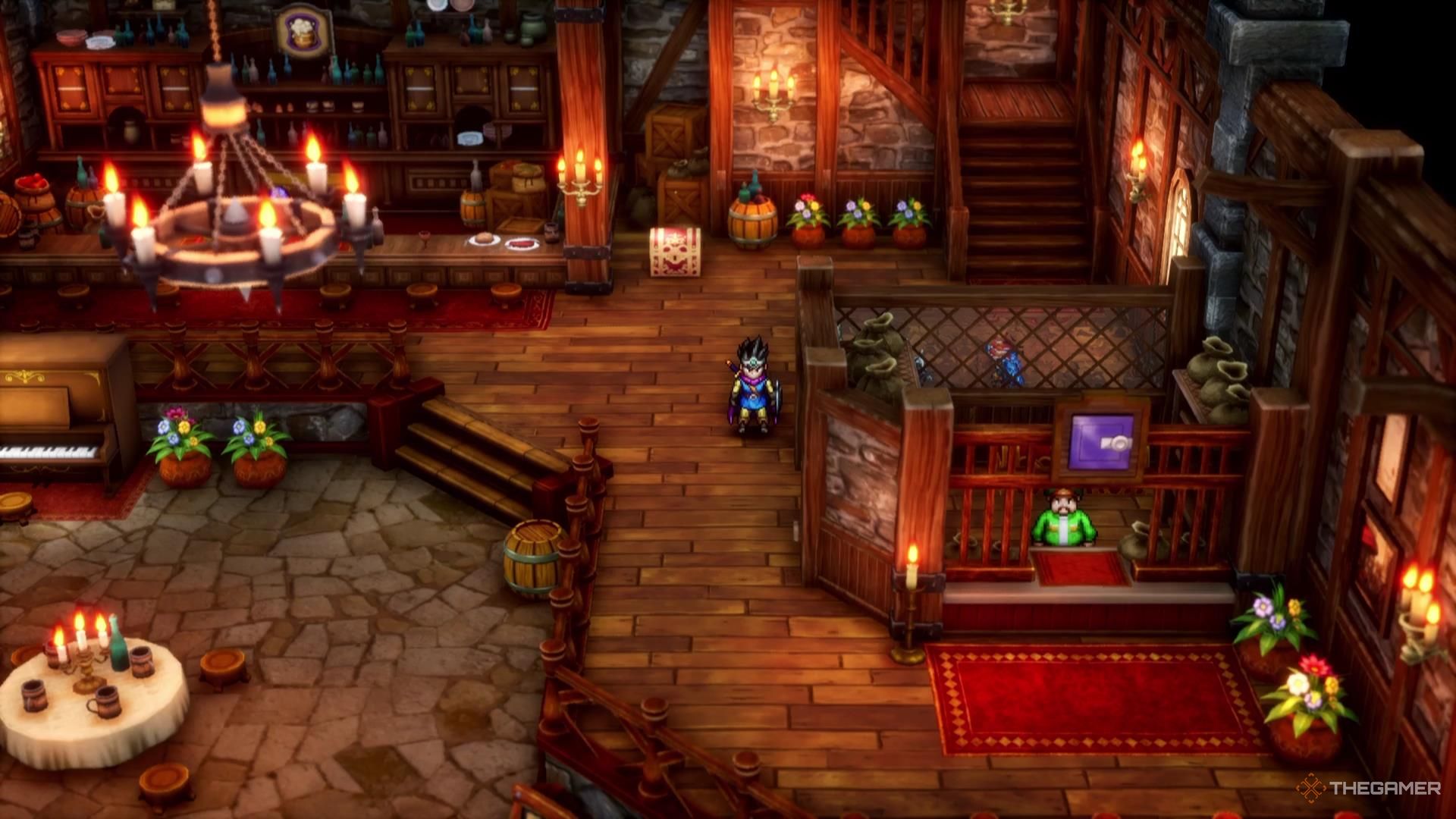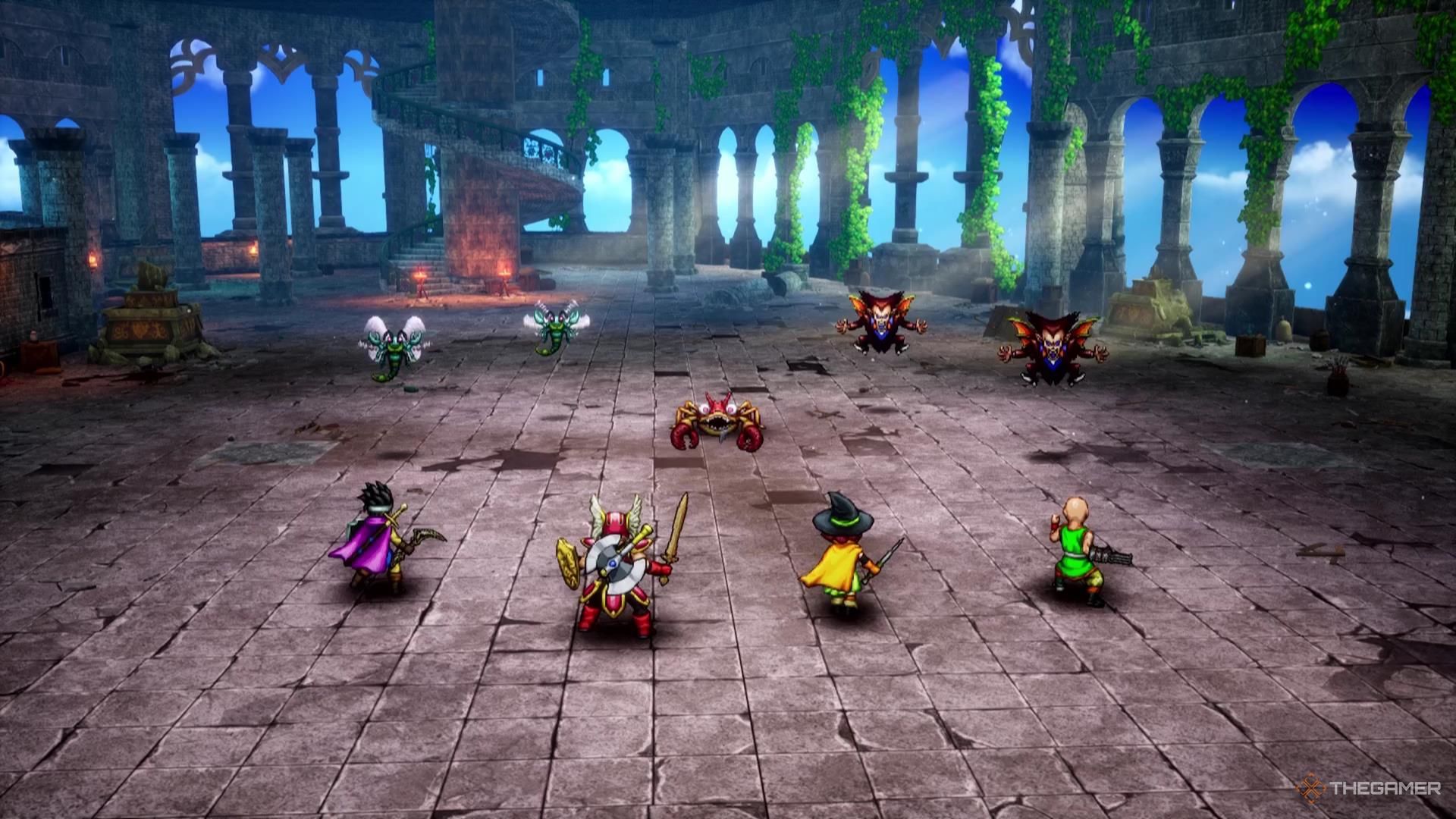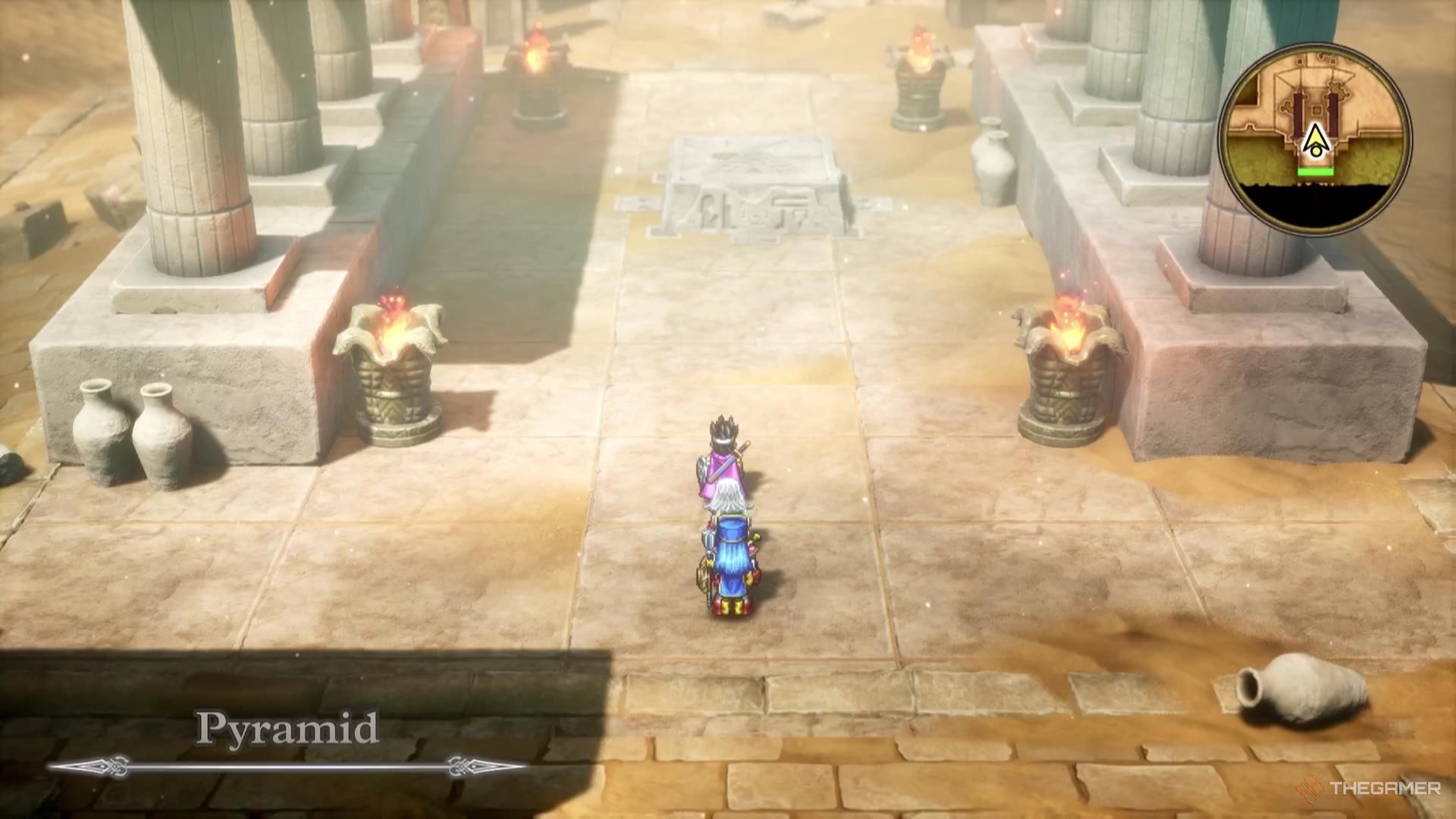Your party lineup in Dragon Quest 3 Remake is crucial for your combat strategy. While many encounters can be easily handled, tougher challenges, especially boss battles and late-game fights, require careful planning.
In these more difficult encounters, assembling the right party is essential. Your choice will depend on various factors, including your personal preferences, the equipment you’ve gathered, and the specific roles that need to be filled during combat. Some party combinations work better in certain scenarios.
Selecting Your Party Lineup
While you can progress through the game with almost any party lineup, it’s beneficial to have characters that serve distinct purposes. Certain vocations are more specialized and should be given priority.
The Hero
You will want at least one character in your group capable of healing. Fortunately, the Hero, who you control and will always be part of your party, can do just that. While the Hero may not be the best healer, their abilities are usually sufficient for most situations.
Priests, Mages, and Sages
The Sage is a vocation that you cannot start as, but you can promote a Gadabout to Sage at Alltrades Abbey after reaching level 20, or by using a Words of Wisdom scroll at the same location. The Sage can fulfill both the Priest and Mage roles, making it a versatile choice for any lineup that typically includes either of these vocations.
Top Offensive-Focused Party Lineups
There are different strategies for assembling your lineup, and one of the most thrilling (albeit risky) is to focus on offense. Such group compositions may lack sufficient defensive and support capabilities compared to other setups, aiming to take down enemies quickly.
Hero | Warrior | Martial Artist | Mage
|
Class |
Description |
|---|---|
|
Hero |
The Hero serves as the primary healer in this lineup, relying on the others to deliver damage in exchange for their support. Although the Hero will not rack up high damage numbers, the rest of the team will compensate for it. |
|
Martial Artist |
The Martial Artist can inflict some of the highest damage in the game once they overcome the early game challenges. They possess exceptionally high critical hit rates, which can significantly boost damage output in Dragon Quest 3 Remake. |
|
Mage |
In a different manner, the Mage can deal significant damage as well. They have access to a variety of offensive spells, and once you identify enemies’ weaknesses, exploiting them will lead to high damage. |
|
Warrior |
While the Warrior isn’t primarily an offensive character, they excel at delivering strong single-target attacks and can safeguard the other, more fragile characters when necessary. |
Hero | Monster Wrangler | Martial Artist | Mage
If you’re feeling bold, swapping the Warrior for a Monster Wrangler can enhance your damage output, albeit at the cost of some defensive capabilities.
|
Class |
Description |
|---|---|
|
Hero |
|
|
Martial Artist |
The Martial Artist’s role remains focused on delivering high single-target damage, capitalizing on the new offensive capabilities introduced by the Monster Wrangler. |
|
Monster Wrangler |
The Monster Wrangler brings valuable area damage potential to this lineup through abilities such as Boulder Toss, Monster Pile-On, and Flame Breath. They can also lend help in healing when necessary. |
|
Mage |
The Mage’s versatility is noteworthy; they can adapt their spells to target weaknesses and deal either area or single-target damage as required. |
Top Defensive Party Lineup
Defensive party lineups are designed to endure damage while gradually wearing down opponents over time.
While these setups may not lack in damage output, it’s important to note that every character in this group can provide support to their teammates when necessary.
Hero | Warrior | Monster Wrangler | Priest
|
Class |
Description |
|---|---|
|
Hero |
In this lineup, the Hero has increased flexibility when it comes to damage dealing, thanks to various weapon options. Boomerangs, in particular, can distribute high damage across multiple foes, making them an excellent choice. |
|
Warrior |
The Warrior and Monster Wrangler fulfill different roles here. The Warrior can absorb damage using Forbearance or Whipping Boy if the situation requires it, or focus entirely on damaging the enemies. |
|
Monster Wrangler |
When the monster supports are needed, the Monster Wrangler can cast Soothing Song to provide some healing. If healing isn’t necessary, they can return to attacking. |
|
Priest |
The Priest is crucial for support, be it through healing, buffing allies, or debuffing foes. Utilizing the Snooze Stick allows them to cast a free Snooze at any time, avoiding impending attacks while conserving MP for crucial moments. |
Top Balanced Party Lineups
Balanced party lineups aim to eliminate any specific weaknesses throughout the group. However, in doing so, they may not excel in any particular area. This doesn’t mean they are ineffective; on the contrary, they can be incredibly successful without focusing heavily on any one facet of gameplay.
Hero | Priest | Martial Artist | Mage
|
Class |
Description |
|---|---|
|
Hero |
The Hero in this lineup will alternate between offense and defense based on the situation. If healing is not immediately needed, the Hero can concentrate on dealing damage. |
|
Priest |
The Priest is essential for providing support. The more healing they do, the more damage the Hero can pursue. |
|
Martial Artist |
The Martial Artist focuses on dealing damage in this setup, specializing in high single-target damage. They play a key role in executing enemies while the Mage handles their own damage outputs. |
|
Mage |
The Mage in this lineup is tasked with delivering multi-target damage. By focusing on weakening clusters of enemies, it makes it easier for the Martial Artist to finish them off. A quick defeat of the foes will lead to success, given the lack of a tank in this configuration. |
Hero | Warrior | Monster Wrangler | Martial Artist
|
Class |
Description |
|---|---|
|
Hero |
During instances when a team member’s health is critically low, the Hero needs to prioritize healing. Conversely, when health is stable, they should focus on inflicting damage. |
|
Warrior |
The Warrior should primarily take on the role of tank. The more damage they soak up, the easier it is for the Hero to focus healing where it’s most needed, allowing for increased damage output from others. |
|
Monster Wrangler |
On turns where the party requires light healing but isn’t in dire need, the Monster Wrangler can utilize Soothing Song to provide minor healing to everyone while the rest of the party attacks. |
|
Martial Artist |
The Martial Artist’s sole responsibility is to inflict damage, focusing on optimal damage during turns when others may need to support and refrain from attacking. |










